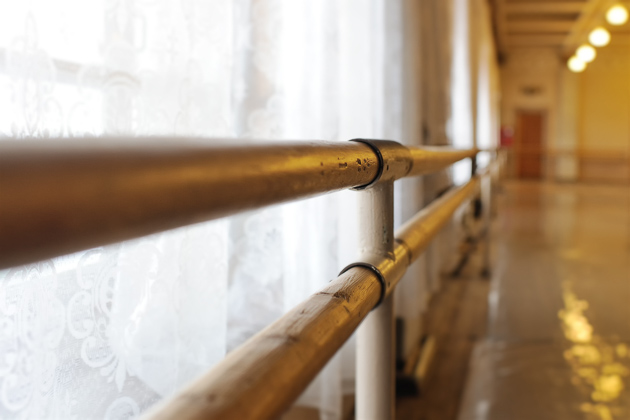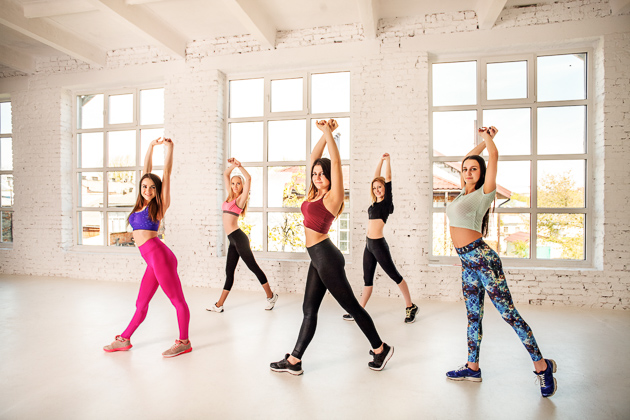Should you Buy or Lease your Dance Studio Space?

Last Updated on 10 October, 2025
Are you considering opening your own dance studio?
If you have a passion for dancing and savvy business skills, you could have what it takes to become a successful dance studio owner. You should also be prepared to put in lots of hard work, but you’re no stranger to that as a dancer.
One of the first things to consider is whether you should buy or lease the studio space. Like most decisions, there’s pros and cons to both.
Are you financially prepared?
According to BizFluent, the salary for a dance studio owner can vary drastically. They report that the salary for a dance studio owner averages around $67,000 a year. Meanwhile, a dance company owner tends to make under $40,000 a year.
Your salary depends on your market area, the clientele that you serve, class fees, and other revenue sources.
Many very successful companies did not earn even a dollar in profits during their first five years of operation. Most business owners run on an income-deficient for the first one to three years.
You need to ask yourself if you have the financial means to keep your studio afloat during your start-up phase. If you aren’t prepared financially, you may have to shut your doors before reaching your first anniversary.
This isn’t to say that you shouldn’t take any risks. Most successful entrepreneurs had to be willing to take risks along the way. But it’s probably best to choose the safest of the bunch, at least during the first few years.
Renting vs buying: What’s the safest bet?
For many dance studio owners, the safest bet will be renting studio space, especially if they are just starting out. However, this may not be the case for everyone. Every situation is unique. Choosing whether to rent or buy may depend on circumstances such as location, funding, and target client audience.

So, unfortunately, there’s no one-size-fits-all answer. But here are some things to consider that can help make your decision a little easier.
The pros of leasing space for your studio
Right off the bat, your friends and family may urge you to rent a space first, and with good reasons. Here are some pros to leasing:
Easier on the wallet
When you are just starting out, it’s much easier to budget monthly rent payments, rather than to budget for a mortgage on top of a hefty down payment. This way, you (and your staff) don’t have to live paycheck to paycheck until your business takes off.
Space flexibility
You also have the option to choose a space that correlates with your business needs at the time. Since you’re just starting, you may only have a few students for the first couple of months. It doesn’t make sense to host them in a large studio space that feels empty.
Should you grow substantially, you have the option to move into a larger space when your lease is up. Renters have the ability to rent only the amount of space that’s needed, year to year.
Renting a small studio space can be a safer alternative to buying. Purchasing a large space right off the bat is arguably a huge risk, even if you foresee needing a larger space in the near future.
Tenant’s blessing
Another plus to renting space for your business is that you are not responsible for any repairs or maintenance. Even small things like needing new light bulbs or fixing the HVAC system can add up in charges. As a tenant, all you would need to do is report the maintenance your studio needs, and let your landlord take care of the rest. After all, you just started your own music school, you’ve got enough to worry about.
The drawbacks to leasing
Of course, there are always two sides to everything. And when choosing a space for your dance studio, there are positives and negatives to both leasing and buying.
Some may say leasing a space is like “throwing your money away”, since you’re paying monthly for something that’s not truly yours.
A space of your own
Should you decide to renovate the space, your hands may be tied. You can always ask your landlord for permission to perform tweaks to the property, but if they don’t agree, then you must oblige.
In other words, when you lease, you need to be content with the property as-is, unless you are able to make arrangements prior to signing a contract with the property’s owner. While you may be able to negotiate post-signing, there are no guarantees.
Maintaining your customer base
You also run the risk of being unable to renew your lease when your term is up.

Every business owner needs to consider what clients want at every stage of their journey.
If you move your studio around the corner, most of your students probably won’t mind making the move with you. However, if you move your studio to the opposite side of town, you might lose business.
Should you Consider Buying?
If you asked around, chances are many people would discourage the idea of purchasing space for any new business venture. Given the volatile nature of startups, most would think it unwise to commit to a mortgage payment for a business that has not yet celebrated its one-year mark.
But some would argue that it isn’t always foolish to purchase commercial property. If the decision is a smart investment, then you won’t find many who can argue against it.
So, how do you know if buying property for your dance studio is the right thing to do?
Can you Afford to Buy?
First, you should ask yourself if you can afford it. This includes being able to afford much more than the monthly mortgage payments. You must be able to afford the down payment, maintenance, repairs, utilities, taxes, and any other costs associated with ownership.
Location, Location, Location
Is the location conducive to operating a successful dance studio?
Your studio should be close to schools, family-friendly neighborhoods, and in close proximity to high-traffic routes. The location should also appeal to your target audience in aesthetics.
Property Value
Think about your property’s resale value. Buying in a growing urban-suburb usually means you’ll have an easier time selling when the moment comes.
In contrast, purchasing space in a rural area can be risky. Fewer buyers may be interested, which could make selling difficult when you’re ready to move on.
Unless you’re confident the property will sell quickly, prepare for the chance of holding it longer than planned.
If you want the property to double as an investment, consider the potential return. Look at current property values, future estimates, real estate trends, and local demographics before deciding.
If you’re confident in the property’s growth and can handle the mortgage and upkeep, buying may be smarter than leasing. But only if you know you can comfortably carry the costs.
Want a sure way to make your job easier?
Running your own dance studio can be hard work. But with the right tools, your job can be much easier.
WellnessLiving offers an all-in-one business management software system for dance studios just like yours! With class-scheduling management, staff and student profiles organization, staff and client apps, automated marketing, rewards program tracking, and much more, we pride ourselves on our ability to help businesses soar.
On top of all of that, WellnessLiving can propel your new business in the right direction with our connection with Reserve with Google. Which means your dance studio will rank on the first page of Google Search, and prospective students can sign up right on the page (we also ensure the reviews your students write are on there too!).
When you’re just starting out, you need all the support you can get.
If you want to see for yourself what WellnessLiving can do for your dance studio, sign up for a free, no-commitment demo with one of our product specialists today! We are excited to meet you.
FAQs about buying vs leasing a dance studio
Beyond the purchase price, studio owners should budget for closing costs, property taxes, insurance, and utilities, as well as any renovations required to make the space suitable for dance. Specialized expenses like sprung flooring, mirrors, soundproofing, HVAC upgrades, or ADA compliance can add up quickly. Don’t forget ongoing costs such as landscaping, snow removal, or security systems. These responsibilities shift entirely to you once you own the property.
Most dance studios benefit from a lease term of three to five years, with options to renew. This provides stability for building your client base while still allowing flexibility if you need to relocate or expand. Shorter leases may be risky if you invest heavily in tenant improvements, while very long leases can limit growth if the space no longer fits your needs.
Always negotiate terms like rent escalation, renewal options, and subleasing rights to protect your business.
Studio owners typically finance property through commercial real estate loans, SBA loans, or traditional bank mortgages. An SBA 504 or 7(a) loan can be attractive for small businesses because of lower down payments and longer repayment terms. In some cases, seller financing or partnerships with investors may also be an option.
Before committing, review cash flow projections to ensure monthly loan payments won’t strain your operations.
When you own your studio space, all maintenance falls on you, from repairing HVAC systems and plumbing to resurfacing parking lots and replacing windows. These costs can be unpredictable but are offset by the long-term value of owning the property. When you lease, many maintenance responsibilities shift to the landlord, though you’re often responsible for interior upkeep and any modifications specific to your dance studio.
Always clarify in your lease agreement who covers repairs to avoid surprises.
Yes. Involving professionals early can save you from costly mistakes. A real estate consultant can help you negotiate favorable terms, evaluate market conditions, and assess property value. An architect or space planner can confirm whether a building can accommodate dance-specific needs such as ceiling height, open floor layouts, and proper ventilation. Their expertise ensures you choose a space that supports both your teaching style and your long-term business goals.






